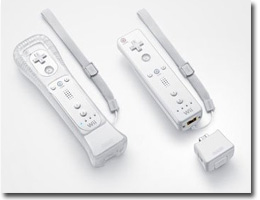 The success of the Nintendo console, the Wii, has proven to change the industry in many new and creative ways including reinvigorating slow product sales at Toys R Us. “The company went from a loss of $42 million at the same time last year to a profit of $13 million for the three months ended August 2nd,” says Gamasutra who spoke with CEO Gerald Storch.
The success of the Nintendo console, the Wii, has proven to change the industry in many new and creative ways including reinvigorating slow product sales at Toys R Us. “The company went from a loss of $42 million at the same time last year to a profit of $13 million for the three months ended August 2nd,” says Gamasutra who spoke with CEO Gerald Storch.
Revenue was up 6.3%, in part, thanks to the Nintendo and its hot moving Wii and Wii Fit products. While Nintendo struggles to supply enough units for the strong demand, Toys R Us has no problem emptying their stores of any hardware they receive.
Months after the Wii launch we witnessed parents waiting in lines before the store opens just to see if they had Wii’s arrive for the opening. Although we’re sure it was a hassle to answer the phones with the typical response, “no, we’ve got no Wii’s in stock,” the long term plan has proven successful.
Have you finally managed to get yourself a Wii? Did you pick it up at Toys R Us?

 In an “unexpected” move, Ubisoft has opted to utilize the 1:1 accuracy of the Wii Motion Plus add-on device for the Wii remote in their next Red Steel sequel, currently called Red Steel 2. It may be most gamers consider this an unexpected move because they thought the series would be dead after the first launch title.
In an “unexpected” move, Ubisoft has opted to utilize the 1:1 accuracy of the Wii Motion Plus add-on device for the Wii remote in their next Red Steel sequel, currently called Red Steel 2. It may be most gamers consider this an unexpected move because they thought the series would be dead after the first launch title.